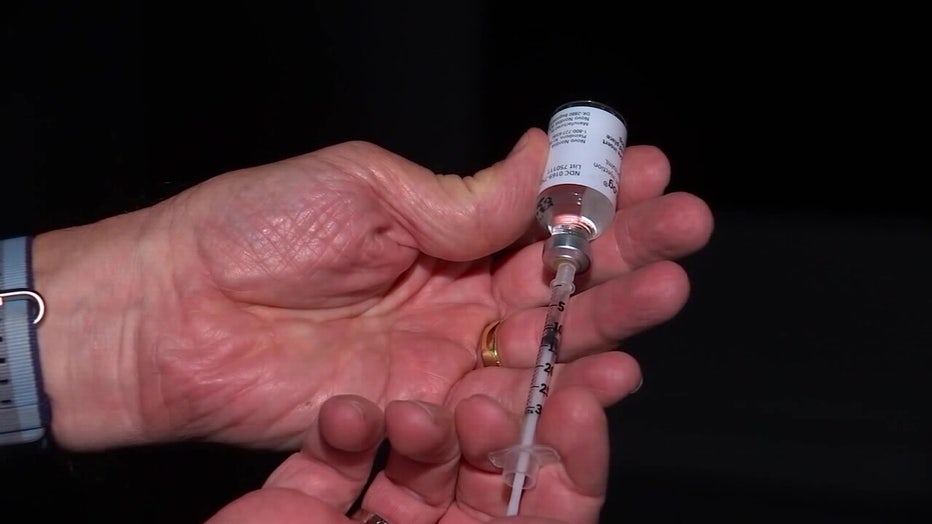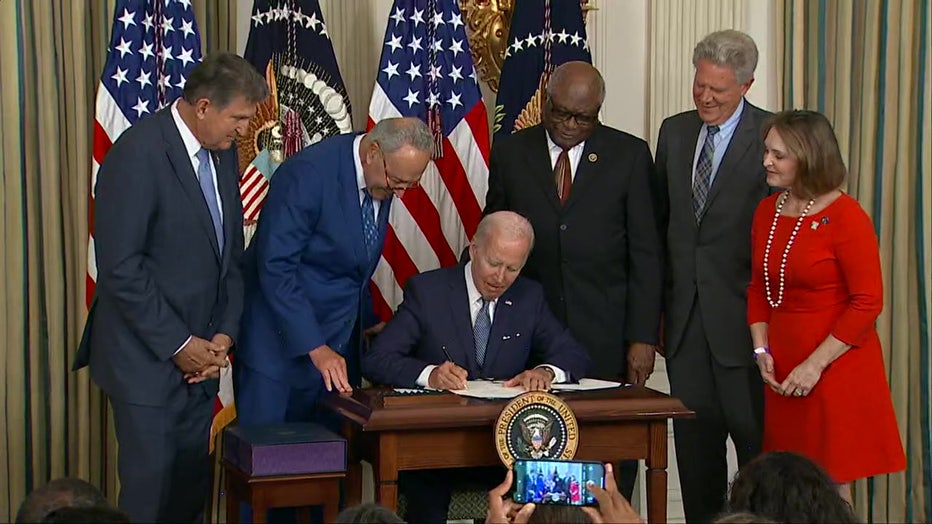Inflation Reduction Act signed into law will cap insulin costs for millions of Americans
TAMPA, Fla. - A cap on the cost of insulin for millions of Americans is among key provisions in the Inflation Reduction Act signed into law on Tuesday.
The new law will limit the monthly prescription costs of insulin to $35 for Medicare Part D participants. On average, that could save seniors more than 50% on the medication, while those paying more than $100 per dose, will see savings quickly add up.
"This is going to be a big boon for many of our seniors to be able to keep money in their pocket, to not have to ration food or ration utilities in order to pay for medication or, very often, go without medication so that they can pay for food and or utilities," said Dr. Kevin Sneed, Dean of the USF Health Taneja College of Pharmacy.
Over his career in medicine, Sneed has watched the price of insulin skyrocket.
RELATED: With insulin prices soaring, Tampa lawmaker urges colleagues to put people over profits
"I can recall a bottle of insulin for some patients costing about $20. About a year ago, I had a patient go by that very same insulin vial and the cost was $150 now. Same company, same insulin, nothing new," said Sneed. "The fact that we've taken insulin over a 30-year period and magnified the price by 100 times more than what it had been 30 years ago is really almost criminal."

The pricing problem is specifically American.
According to a Department of Health and Human Services study, the cost for a standard unit of insulin in the U.S. is more than 10 times what other countries pay. In 2018, Americans paid an average of $98.70 for a standard unit of insulin, compared with $8.81 in the 32 non-U.S. Organization for Economic Cooperation and Development countries for which prescription price data was available.
And the Mayo Clinic notes prices for insulin continue to climb. The medical research nonprofit found that from 2016 to 2019 the cost of insulin rose by more than 10-percent in the U.S., while inching up just .01 percent during that same period in Canada.
"We know that the formula for insulin has not changed over time. It's just that the drug companies have taken advantage of people," said U.S. Representative Kathy Castor (D-Tampa), who stood by President Joe Biden's side as he signed the Inflation Recovery Act into law.

Insulin was discovered a century ago. It pre-dates the discovery of penicillin and remains the only effective treatment for people with type 1 diabetes. Prior to its discovery, patients typically only lived a year or two after developing diabetes.
The researchers who discovered insulin sold its patent for $1, with the intent that the treatment would be easily replicated and widely available to all, regardless of a patient's income level.
But now firmly in the hands of private drug companies, the price of insulin has increased dramatically in the last 20 years. Some U.S. patients spend upwards of $600 a month for insulin, even with insurance.
MORE: US House passes legislation that would cap insulin prices
"You need policymakers who are willing to stand up to the big drug companies. Fortunately, we did that here through the Inflation Reduction Act in Medicare," said Castor, who has championed legislation aimed at limiting the price of insulin for years.
In addition to setting a cap on the monthly prescription cost of insulin, the legislation also limits out-of-pocket spending on all prescriptions to $2,000 per year for Medicare Part D.
"That really is going to help a lot of people become more healthy and stay healthy, but we also hope it will keep people out of the hospitals and emergency rooms by better controlling their diabetic conditions," said Sneed.
The original version of the bill included a $35 monthly cap on insulin for everyone, regardless of income level or age, but that clause was stripped at the last second when democrats in the senate couldn't muster enough support from republicans for the universal measure. Florida Senators Marco Rubio and Rick Scott were among 43 republican lawmakers to vote against the universal price cap on insulin.
Representative Castor said this is a good start, but she plans to continue to work towards legislation that will drive insulin costs down for all Americans.
"We're going to get right back to work working on that insulin cap," said Castor.

